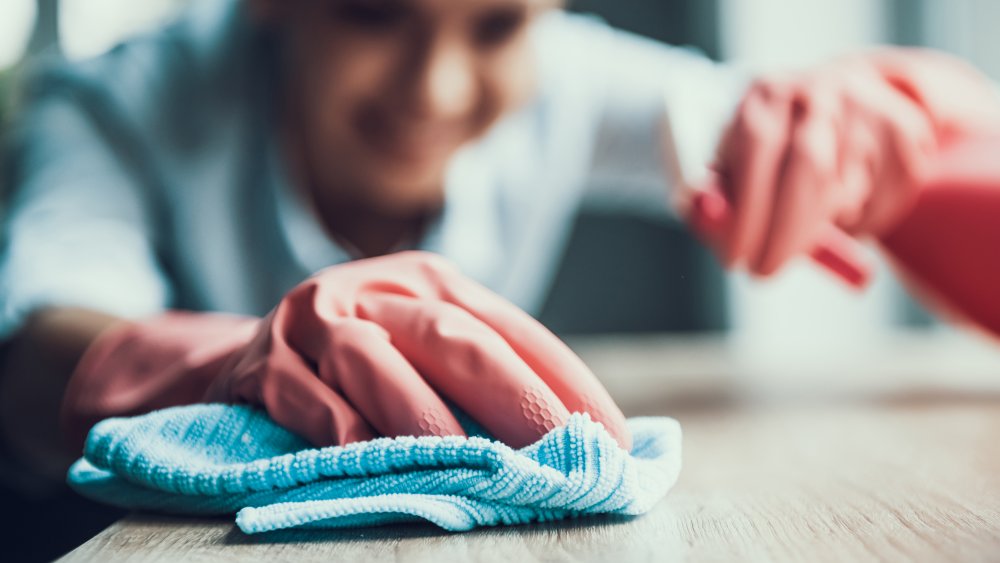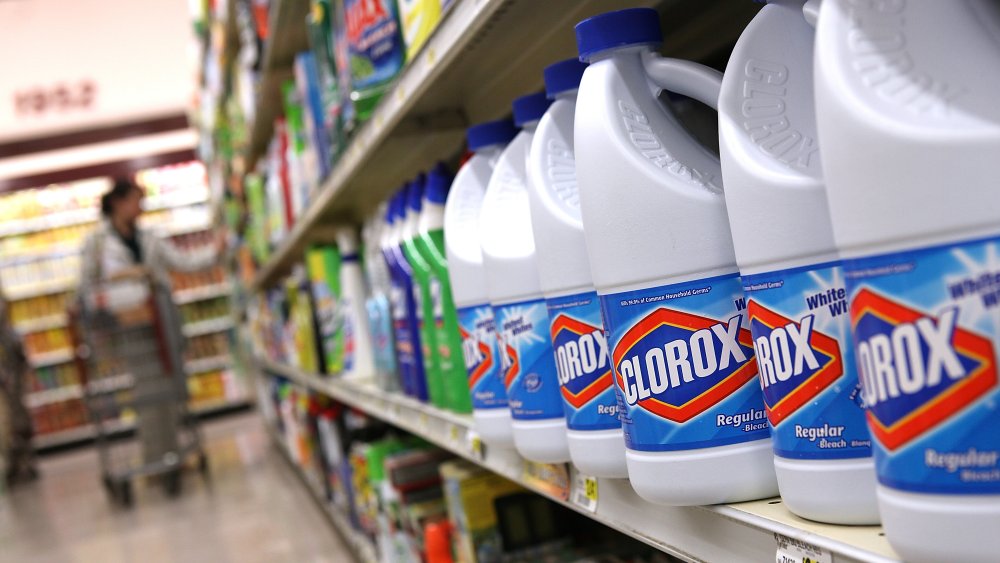What You Should Know Before Making Your Own Disinfectant
When it comes to the things we use to clean our living spaces, we're creatures of habit. Unfortunately, getting your hands on your usual branded, premade cleaning supplies can be a problem these days. If you aren't able to find the brands you're comfortable using, though, there are still ways to use common household chemicals to make sure you're able to keep your home as germ-free as possible.
Even in the middle of a pandemic, experts say there is no need to change your cleaning routines — unless you live in a high-risk area, or if you suspect someone at home might be infected with COVID-19. In that instance, New York-based infectious disease Dr. Stephen Thomas told Consumer Reports, "Clean high-traffic areas that get touched frequently, such as kitchen counters and bathroom faucets, three times a day with a product that kills viruses."
Cleaning experts told the The New York Times that you need to undergo four steps when disinfecting surfaces: pre-cleaning, disinfecting, wiping the area clean, and rinsing the area with water. Pre-cleaning can get rid of any surface dirt that might hide germs like COVID-19, disinfecting with a proper "dwell time" to actually get rid of germs, wiping down the disinfected area (which can become sticky and which can attract more microbes), and then rinsing clean.
A homemade solution of diluted bleach can be used to clean infected surfaces
You can make your own household cleaner using a solution of chlorine bleach and water. The CDC says bleach is most effective if you dilute 1/3 cup of water for every gallon, although Clorox says it's better to use 2 tablespoons per quart. Spray the solution on all surfaces, wait 10 minutes, then wipe and rinse. Bleach needs to be cleaned off because it is so corrosive that it will degrade most surfaces. Also, since bleach degrades quickly, it is also important to mix only what you need for up to 48 hours.
70 percent isopropyl alcohol can also kill the coronavirus. To use, first clean surfaces with soap and water, then apply undiluted alcohol to surfaces and leave for 30 seconds to disinfect. Hydrogen peroxide can also be used in the same way, but it needs to sit on the surface for at least one minute.
Consumer Reports warns that chemicals that aren't effective against the coronavirus include homemade hand sanitizer, vodka, white vinegar, and tea tree oil. Whatever you do, don't turn your quest to find the best household cleaner into a DIY chemistry experiment, because many cleaners can't be mixed. In any case, "It isn't possible to disinfect every surface you touch throughout your day," Thomas explained. "The planet is covered with bacteria and viruses, and we're constantly in contact with these surfaces, so hand-washing is still your best defense against COVID-19."

